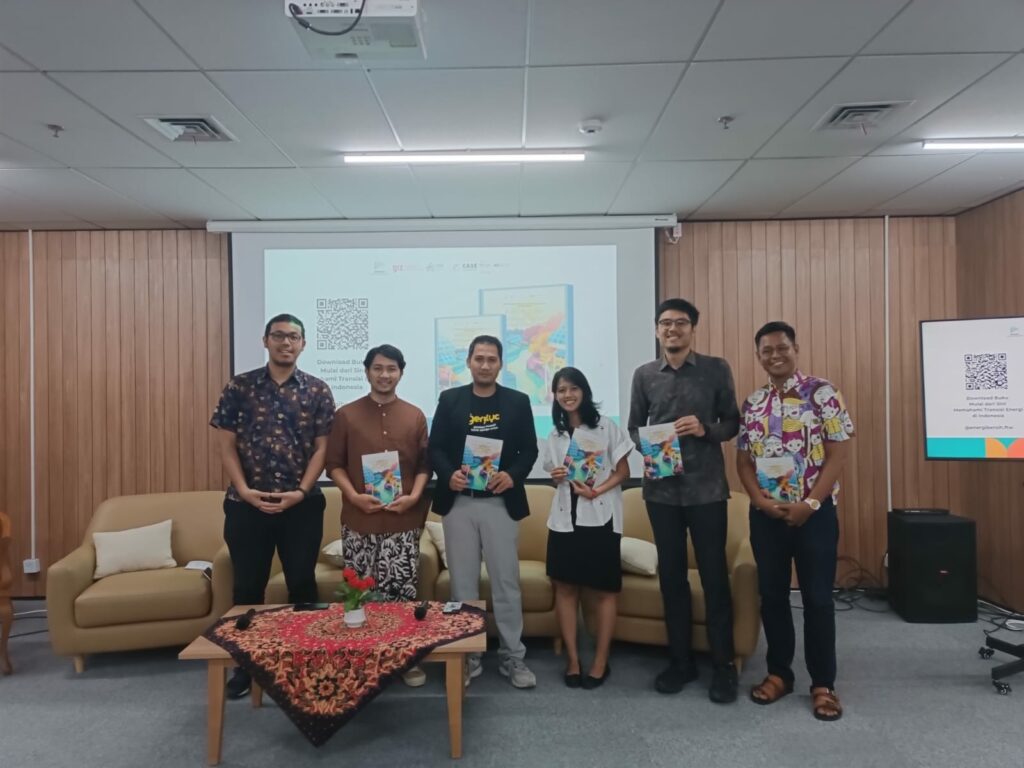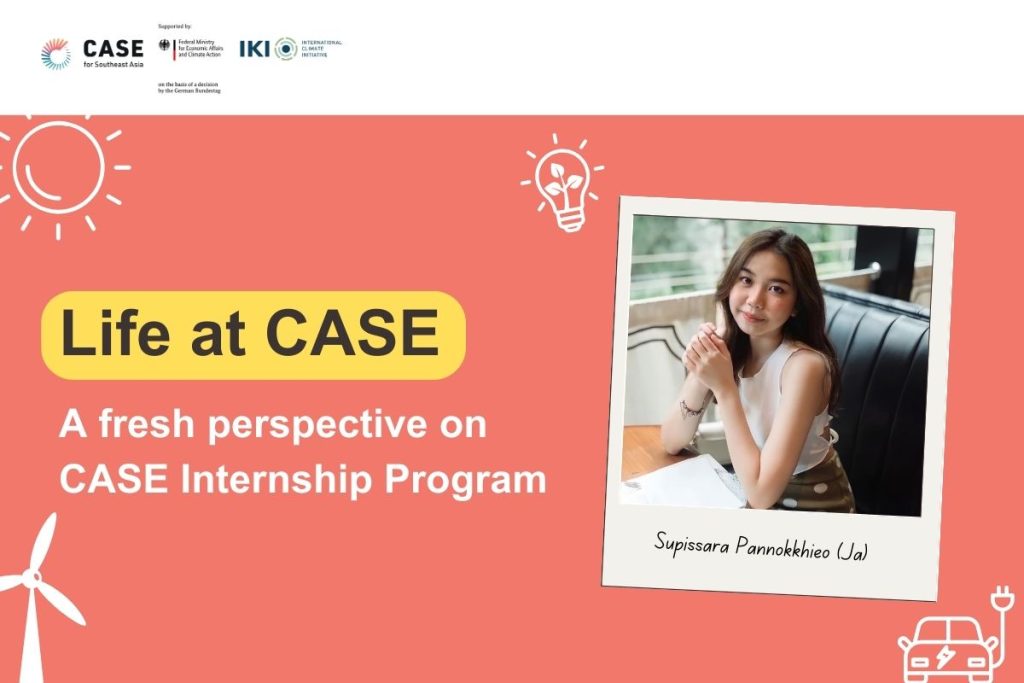Jakarta, 15/09/2023 – Project Clean, Affordable and Secure Energy (CASE) for Southeast Asia launched a book called Mulai dari Sini: Memahami Transisi Energi di Indonesia (Start from Here: Understanding Energy Transition in Indonesia) in Jakarta’s Public Library on Wednesday (13/09/2023).
Through this book, Project CASE would like to elevate the knowledge of students and the public with an easy to read, colorful and image-forward reading, as the topic of energy transition in Indonesia is dominated by reports and scientific journals. Education is critical to ensure a just energy transition in Indonesia. The online version of the book will be available for free on www.caseforsea.org, as Indonesia is an archipelagic country, Project CASE would like to ensure other regions in Indonesia could have access to this knowledge and information.
Agus Tampubolon, as Project Manager of CASE Indonesia, and also one of the authors of the book, explained to the public on how energy transition is still considered as a high-level topic which is mainly discussed only between academics or governments. Through this book, Agus with two other authors, Iqbal Ilham and Vannesa Hildegard translated the topic of energy with easier language and visualization. Therefore, more people would be able to understand the topic.
“Project CASE has a mandate to change the narrative of energy transition in Indonesia. But how can we change the narrative if the issues are still acknowledged only by several groups of people who have knowledge about energy. This book would like to bridge this accessibility gap, and would like to emphasize on just energy transition in Indonesia,” said Agus.
There are three panelists invited to review the book before it was launched. Hestia Istiviani, as the Reading Ambassador of Jakarta, was very excited to have a colorful and easy-to-digest book about energy transition, as before, only reports or journals are available.
“This book is very exciting to read, as someone who’s not from a technical background. We do hope in the future, Project CASE could translate the book towards a child-friendly one, maybe like a comic or children book,” added Hestia.
The excitement towards the book was beyond expected by CASE. This showed that more people are interested in learning about energy transition in Indonesia. However, the sophistication of the issue and the limited access to readings that are published in Bahasa Indonesia, sometimes hinder the public from understanding the topic better. CASE hopes this book could reach more people in Indonesia, not only in the island of Java.




